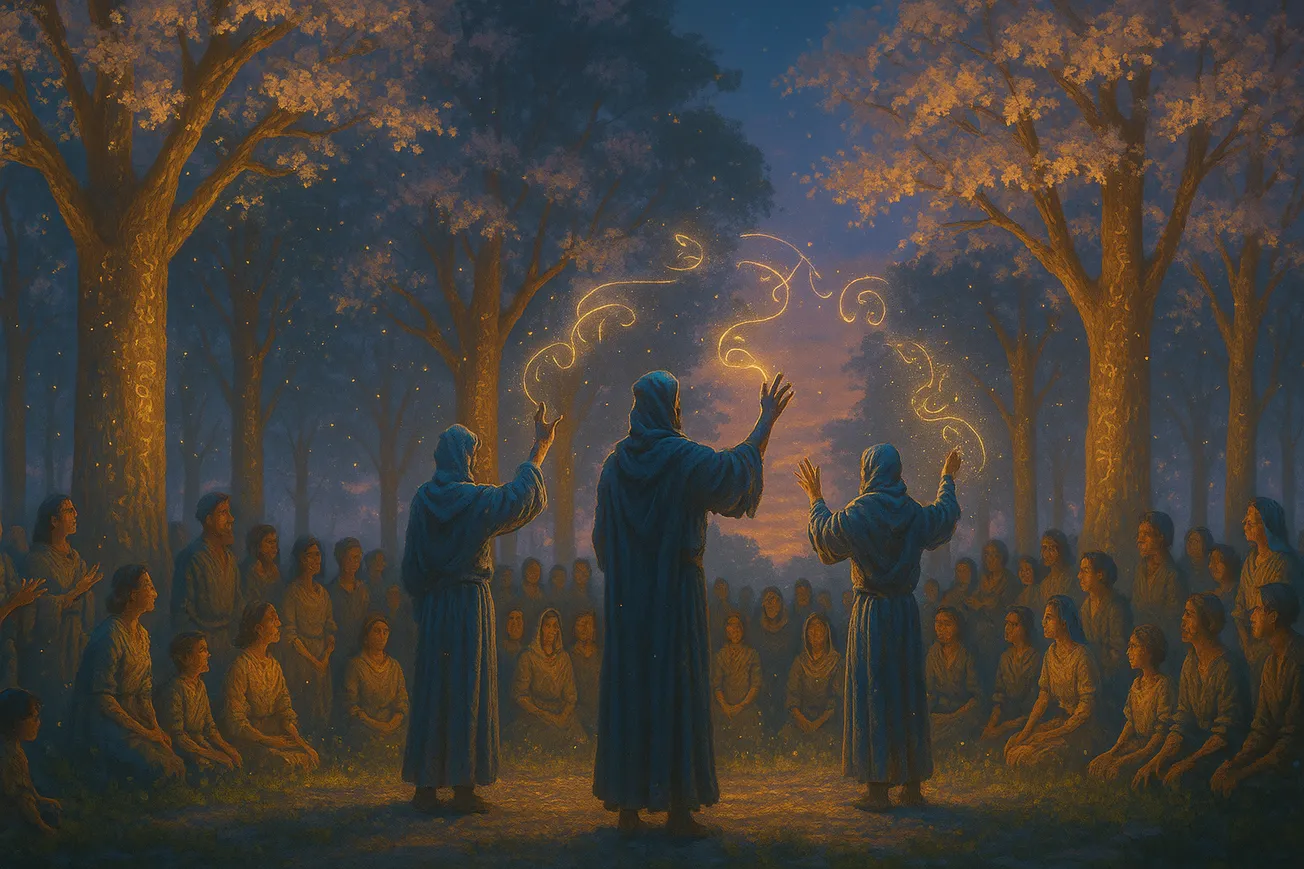🌈 The Fractal Story Engine | Meta-Meaning, Knowledge, Language | (36) MMK-003-F1
They arrived only at night, barefoot and blue-palmed, their eyes clouded with the pollen of thoughtflowers. No one knew where they came from, only that they moved without maps and spoke only in glyphs traced on wind-worn bark.
These were the Cartographers of Yivreth, and they did not chart terrain. They mapped the changing nature of meaning.
Each word, once known by a village, would wither like a fruit held too long. The more it was shared, the stranger it became. A word like "harvest" once meant the gathering of crops, but after a poet used it to describe sorrow, and a child used it to name their longing, the word stopped pointing to the field and began hovering over graves.
The people adjusted. They learned to speak carefully, knowing a word might no longer mean what it once did by dusk. They developed signs of the eye and wrist, inflections of jaw and shadow. But even those began to twist.
One dusk, a boy named Selun whispered a word he found carved beneath the river bark: “Iniel.” It shimmered like an unopened shell in his throat. When he said it aloud to the trees, they dropped their leaves. When he whispered it to the bones of his sleeping grandmother, she exhaled a song none had ever heard. The word moved like a ripple through the village, and by morning, “Iniel” was being used to mean “home,” “ache,” “dawn,” and “end.”
Selun tried to forget it. But the word nested behind his eyes. It became the shape of how he listened.
That is when the Cartographers came.
They did not knock. They simply appeared, fingers dipped in the dust of vanished dialects, their robes stitched with alphabets no longer spoken. One knelt beside Selun and drew a circle in ash. Inside it, they painted the word Iniel. Then they sliced it down the middle.
A new shape emerged. Two meanings where once there was one. The boy blinked, and now the word meant “threshold” and “belonging,” and no longer could it carry both. He felt them split inside him, as if his ribs now bent around two separate suns.
The Cartographers nodded. This was their work. Not to control language, but to break it open. To remind those who spoke that words were not stones, but currents. You could not anchor them and remain unchanged.
They stayed in the village through the cycle of three moons. Each day, another word fractured. The people learned to live with tongues that grew branches. A fisherman found that the word for “net” now also meant “dream,” and he began casting his thoughts into the sea. A baker discovered “flour” now whispered of grief, and her bread became sacred at funerals.
Then, on the final night, the Cartographers vanished.
No trail, no farewell. Only a bark-scroll left in Selun’s palm, curled like a chrysalis.
He opened it and found one word. It had never been spoken in the village. It had no root in the known tongues.
The word was: “Yivreth.”
He did not say it.
Instead, he planted it beneath the stone where his grandmother once sang. And each spring, a new kind of tree rose from the soil, with bark that changed color depending on who touched it, and leaves that hummed with different meanings depending on the hour.
No one dared speak the name aloud.
But some nights, when the sky shifted just so, Selun could feel the word blooming inside him again, reshaping everything he thought he had known.
And he understood.
Language was not a tool to be wielded. It was a field of lightning, dancing just beyond grasp.
The map was never fixed.
It was the act of walking that rewrote the land.

